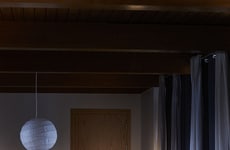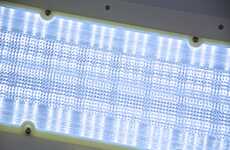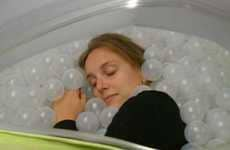
Researchers Find 'Sleep Gene' That Affects Circadian Rhythms
References: lifestyle.indiainfo
Scientists from the University of California, San Francisco are working on a special program to explain why some people are active even after six hours of sleep rather than the recommended eight hours of sleep.
Since lack of sleep is known to provoke serious diseases and pose significant health risks, researchers are keen to demystify the science of slumber. The study showed that mutation in a gene known as hDEC2 helps in regulating the optimal length of human sleep.
Since lack of sleep is known to provoke serious diseases and pose significant health risks, researchers are keen to demystify the science of slumber. The study showed that mutation in a gene known as hDEC2 helps in regulating the optimal length of human sleep.
Trend Themes
1. Optimal Sleep Gene - The discovery of the sleep gene hDEC2 opens up opportunities for developing personalized sleep treatments and technologies.
2. Sleep Duration Regulation - The research on regulating the optimal length of human sleep points to potential innovations in sleep tracking devices and apps that optimize individual sleep schedules.
3. Sleep and Health - As sleep disorders contribute to serious diseases, there is potential for disruptive innovation in sleep clinics, personalized sleep therapies, and wellness programs.
Industry Implications
1. Healthcare - The healthcare industry can benefit from the sleep gene discovery by developing new diagnostics, treatments, and personalized interventions for sleep disorders.
2. Sleep Technology - The sleep technology industry can capitalize on the research findings to create advanced sleep tracking devices, smart mattresses, and sleep apps that optimize sleep duration and quality.
3. Wellness - The wellness industry can leverage the importance of quality sleep by offering tailored sleep programs, retreats, and products that promote better sleep habits and overall well-being.
2.4
Score
Popularity
Activity
Freshness























